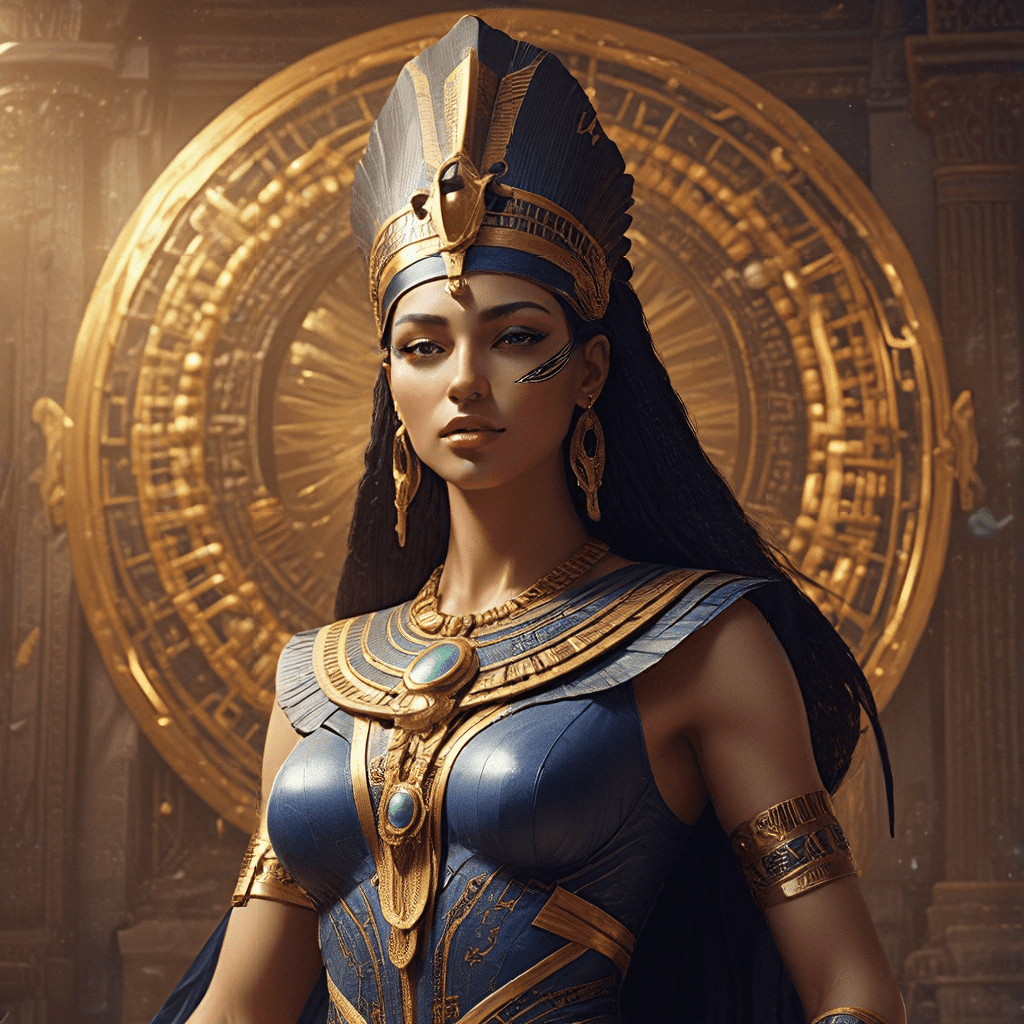1. Introduction: Unveiling the Mystery of Nephthys
Nephthys, a powerful figure in ancient Egyptian mythology, is often described as the goddess of the soul. Her presence transcends the boundaries of a simple deity, embodying a multifaceted essence that encompasses protection, motherhood, and guidance for the deceased. From her role as a guardian of the dead to her intricate involvement in the Osiris myth, Nephthys’ presence weaves through the tapestry of Egyptian belief, offering a profound insight into their understanding of the afterlife and the nature of the human spirit.
2. Origin Story and Lineage: Daughter of Nut and Geb
Nephthys’ origins are deeply entwined with the creation myth of the cosmos. She is the daughter of Nut, the sky goddess, and Geb, the earth god. Her siblings are Osiris, Isis, and Seth, each representing a vital aspect of the universe. Nephthys’ birth is symbolic of the harmonious balance between the celestial and the terrestrial, highlighting the interconnectedness of all things in the Egyptian worldview. Her lineage places her within the royal family of the gods, a testament to her innate power and influence.
3. The Twin Goddess: The Dark Counterpart to Isis
Nephthys is frequently characterized as the “dark counterpart” to her sister, Isis. While Isis embodies the light, fertility, and nurturing aspects of the feminine divine, Nephthys represents the darkness, mystery, and the protective aspects of the soul. This duality is not to be interpreted as a rivalry, but rather a necessary balance in the cosmic order. The contrasts between Nephthys and Isis reflect the inherent duality present in all things, emphasizing the importance of acceptance and understanding of both light and darkness. This duality is a key element of Egyptian cosmology, reflecting the belief that harmony arises from the interplay of opposing forces.
4. The Protection of the Dead: Guardian of the Soul
Nephthys’ association with the afterlife is arguably her most prominent role. She is often depicted as a protector of the dead, accompanying them on their perilous journey to the underworld. Her presence is believed to provide comfort and guidance, assisting the deceased in navigating the challenges and trials of the afterlife. In the ancient Egyptian belief system, the soul, or “ka,” is believed to be a vital part of the deceased’s being, and Nephthys acts as its guardian, ensuring its safe passage and ultimate resurrection.
5. The Myth of Nephthys and Anubis: The Birth of Anubis
One of the most captivating tales involving Nephthys is the myth surrounding the birth of Anubis. Anubis, the jackal-headed god of mummification and the underworld, is said to have been born to Nephthys, although the father’s identity remains unclear. Some versions suggest that Osiris is the father while others propose Seth. Regardless of the father’s identity, the symbolism behind Anubis’ birth is profound. Nephthys, as the protector of the soul, gives birth to the god who oversees the preservation of the physical body, highlighting the interconnectedness of the soul and the material form in the afterlife.
6. The Role of Nephthys in the Osiris Myth: The Loyal Sister
The story of Osiris, his murder at the hands of his brother Seth, and subsequent resurrection is one of the most enduring narratives in Egyptian mythology. Nephthys plays a pivotal role in this epic tale. Driven by loyalty to her brother, she assists Isis in retrieving and reassembling Osiris’ fragmented body. Her compassion and dedication to Osiris demonstrate the depth of her love and commitment to her family. This act underscores her position as a protective force, not just for individual souls, but for the familial bonds that hold the divine order together.
7. The Significance of the Name ‘Nephthys’:
The name Nephthys itself holds significant meaning. Its etymology is rooted in the ancient Egyptian phrase “nbt-ht,” which translates to “Lady of the House.” This suggests that Nephthys is not merely a goddess of the dead, but also a protector of the home, a figure who ensures the safety and well-being of those she cares for. This element of guardianship extends beyond the afterlife, suggesting her presence in the lives of the living as well, offering protection and guidance to those who call upon her.




